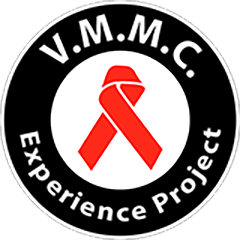Letters to UNICEF
Background
In December 2016, the United Nations Children’s Fund (UNICEF) released a report on the decade’s upsurge in HIV cases among adolescents aged 15–19, with girls disproportionately affected. The VMMC Experience Project is aware that this age range has been a core VMMC target group.
Could mass male circumcision – with fatal rumours of HIV protection – be increasing the HIV risk in young people? Corroborating the findings of our investigation in Uganda and Kenya, the report states that “[t]he number of adolescents living with HIV has increased by 28 per cent since 2005,” and anticipates a 60% increase from 2015 to 2030 if current trends persist.
In light of these findings, we sought to understand why UNICEF not only supports an initiative which appears to put young people at higher risk, but is also spearheading the “early infant male circumcision” (EIMC) campaign.
In addition to the practical concerns from the programme, the VMMC Experience Project is aware that children are circumcised unwillingly. It remains our sincerest hope that UNICEF will stand on the right side of history and protect the human rights of minority children.
For our latest (2017) letter to UNICEF, click HERE.
2016 letter

Dr. Anthony Lake, Executive Director
UNICEF House
3 United Nations Plaza
New York, New York 10017
U.S.A.
December 1, 2016
Dear Dr. Lake:
We are aware of UNICEF’s efforts to promote the “early infant male circumcision” (EIMC) programme in sub-Saharan Africa – ostensibly, to correct the shortcomings of the “voluntary medical male circumcision” (VMMC) campaign. We are concerned that the discourse around these programmes has excluded the voices and experiences of its subjects. When we give Africans a say in the matter, a very different story emerges than what UNICEF has reported.
Our organisation sent cameras into rural Uganda and Kenya to document the realities of the mass circumcision programme. We uncovered chilling details of what the campaign is really doing to children, families, and communities. Our findings also demystify why African HIV rates are higher now than before circumcision implementation.
For more information, please visit our investigation at vmmcproject.org. Note that many of the subjects expressing outrage were those circumcised as children in the VMMC/EIMC campaign.
We respectfully urge UNICEF to prepare a response to our investigation, addressing the personal experiences as well as the practical, ethical, and human rights concerns raised by so many Africans.
In light of VMMC/EIMC’s racial undertones and reception in the Black community, we add the following question: How will history remember the mass circumcision of Africans, and on what side of history will UNICEF stand?
We look forward to your response.
Sincerely,
The VMMC Experience Project
www.vmmcproject.org
Response
On 3 March 2017, representative Aida Girma-Melaku issued this letter response from UNICEF’s Uganda Country Office. UNICEF’s EIMC programme in Uganda was defended on public health grounds, and the egregious complications from VMMC as reported in our in our investigation were misattributed to traditional circumcision rituals.
2017 letter
On 19 July 2017, the VMMC Experience Project replied to UNICEF that its letter “failed to address the findings of our investigation and the experiences of those reporting harm.”
The investigation results were summarised within five key categories: (1) allegations of children’s rights violations; (2) a lack of safeguards for parental consent; (3) changes in sexual functioning; (4) the reported rise in sexual violence; (5) the reported rise in HIV cases.
Co-signees on the letter included:
- Piotr Czauderna, President of the Paediatric Surgery Section, European Union of Medical Specialists
- Daniel Ncayiyana, Emeritus Editor-In-Chief of the South African Medical Journal (SAMJ)
- Dean Edell, Broadcasting Physician and Founder of HealthCentral
- Ragnar Bjarnason, Department of Paediatrics, National University Hospital of Iceland
- Tom PVM de Jong, Departments of Paediatric Urology, University Children’s Hospitals, UMC Utrecht and AMC Amsterdam
- Noni MacDonald, Division of Paediatric Infectious Diseases, Dalhousie University
The full letter is available HERE (press release here).
Response
On 15 August 2017, UNICEF Director Anthony Lake issued this brief response – a 160-word defence of the VMMC and EIMC programmes.